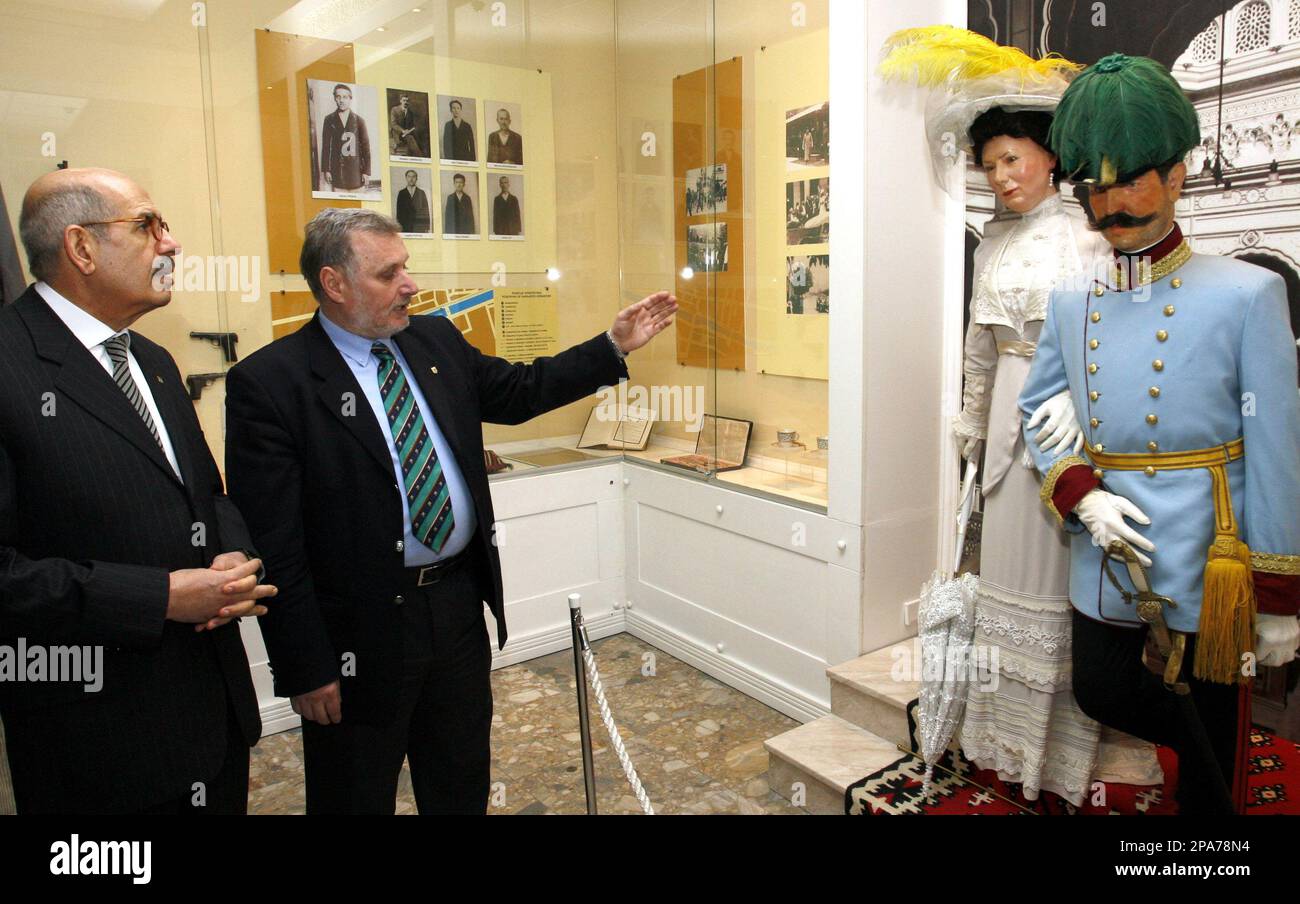
Milorad Dodik, the republic's strongman prime minister, is expected to open a new park and name it after the assassin. In Istocno Sarajevo, Gavrilo Princip is still lauded by many as a national hero who fought against Austrian oppression.

In emergency cases, citizens of Istocno Sarajevo cannot be treated in the city centre's general hospital, Komsic notes, instead having to be taken 120 miles to Banja Luka, the capital of the RS. Swaths of the capital lie in the RS, where the administration of Istocno (east) Sarajevo operates separately, the two not even joined by public transport. Many Muslims regard it as the product of ethnic cleansing, while for Serbs its existence is a guarantor of peace. The highly autonomous RS was recognised by the peace settlement. Nineteen years after the war ended, Bosnia operates as two "entities", the predominantly Muslim and Croat Federation, and the overwhelmingly Serb-dominated Serb Republic (RS). However, the ceremonies are being boycotted by the president and prime minister of Serbia, who claim that a plaque on the city hall commemorating the 1992 bombardment and the loss of almost 2m books denigrates the Serb people.ĭespite his message of goodwill, Komsic presides over only a part of an ethnically divided city. Just before midnight, a choir will sing on the Latin Bridge, beside which Franz Ferdinand and his pregnant wife Sophie were killed by Princip. The presidents of several European countries are expected. A range of international figures are attending ceremonies on Saturday, including a concert of the Vienna Philharmonic orchestra at the newly restored city hall, where Franz Ferdinand attended a reception shortly before the assassination, and which housed the city's library, destroyed by Serb artillery during the war. This is Sarajevo's biggest international moment since the end of the Bosnian war almost 20 years ago. "Now we're sending a different message of peace, love and understanding." "For the past 100 years, the information that the world has received from here was about war and atrocities," says Ivo Komsic, Sarajevo's mayor. Princip remains a polarising figure, revered by many of Bosnia's Serbs, but derided as a murderer by the country's Muslims and Croats. But stark divisions remain, both from the most recent war between 1992-1995, in which 100,000 people died and Sarajevo suffered a 1,425-day siege by Serb forces, and events 100 years ago. The anniversary is being marked by concerts, conferences and exhibitions, as the city projects itself as a beacon of peace following a century in which it has been associated with war.


 0 kommentar(er)
0 kommentar(er)
